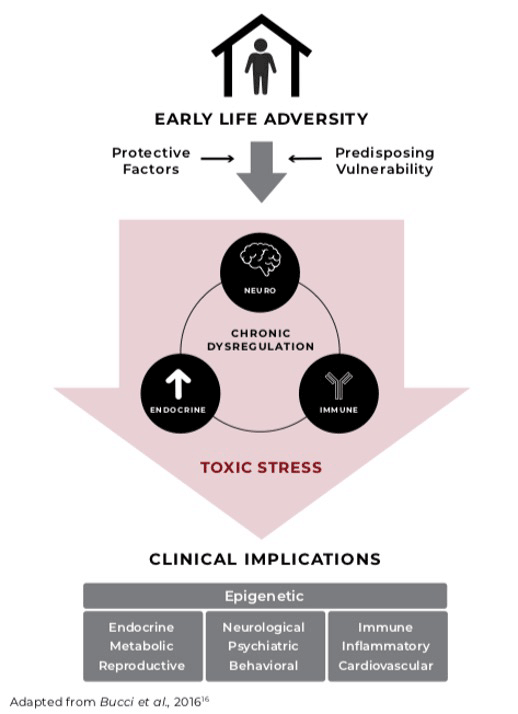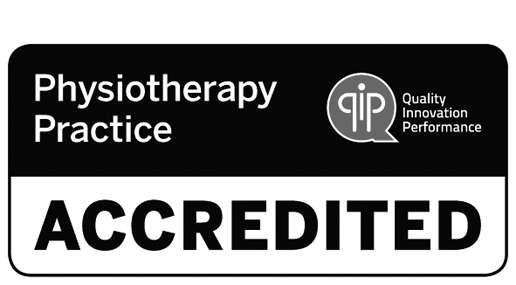Adverse Childhood Experiences: Implications For Adult Health
Did you know that adverse experiences in childhood can have a big impact on health later in life? A landmark study in 1998 known as the ACE (Adverse Childhood Experiences) study1 followed over 17,000 participants, investigating the impact of emotional and physical trauma in childhood on physical and psychological health later in life. The results were overwhelmingly clear that childhood abuse and family dysfunction had a profound effect on adult mental health and wellbeing and increased the chance of developing chronic illnesses such as heart disease, diabetes, cancer, persistent pain and obesity. We acknowledge the strong relationship between pelvic pain, sexual pain and bladder/bowel concerns and a history of childhood trauma, which is why we now routinely screen for ACE’s as part of our assessment process.
What is an ACE?
ACEs are potentially traumatic experiences such as neglect, experiencing or witnessing violence, and having a family member attempt or die by suicide that occur in childhood (birth to 17). ACEs can be screened for using the Adverse Childhood Experience Questionnaire for Adults. The ACE questionnaire comprises 10 categories which have been shown in repeated large studies to have a profound impact on mental health, well-being, biomedical diseases and premature death. A score of 2 or greater is considered significant, and a score of > 4 is extreme2.
An amazing book
What Happened to You? Conversations on Trauma, Resilience, and Healing, written by Dr Bruce Perry and Oprah Winfrey, has recently been released. Dr Brené Brown interviews Oprah and Dr Perry in a
fascinating podcast exploring the book, including how they have applied and utilised the ACE questionnaire.
ACE’s & Adult Health
ACEs are strongly associated with mental health conditions including depression, anxiety, PTSD and sleep disorders, and also with many other common health conditions prevalent in our society today. Adults with 4 or more ACEs are:
- 3.2 x more likely to have chronic lower respiratory disease3
- 2 to 2.3 x more likely to have a stroke, cancer, heart disease or asthma3
- 1.4 x more likely to have diabetes3
The higher the ACE score, the greater the risk for ACE-Associated Health Conditions.
Why Do ACE's Affect Adult Health?
Evidence suggests that repeated or prolonged activation of a child’s stress response, in the absence of protective factors such as a nurturing home environment, leads to long term changes in brain development, metabolic, immune, and neuroendocrine response, and will influence epigenetics2. This cycle is known as the toxic stress response.
Source: https://www.acesaware.org/wp-content/uploads/2020/05/ACEs-Aware-Provider-Toolkit-5.21.20.pdf
It is common for people who have experienced childhood adversity to participate in health damaging behaviours. However, even in the absence of health damaging behaviours, strong associations between higher ACE scores and increased risk of serious health conditions persist2.
Trauma Informed Care
Some health professionals may be fearful of asking these questions, as they may not feel equipped to deal with the responses. However, research shows that simply acknowledging the trauma, and listening with empathy to the patient’s story can have a profound impact on their health. In the original ACE study, Feletti1 found a 35% reduction in doctor visits and an 11% reduction in visits to the emergency department the following year, by asking ‘can you tell me how this adverse childhood experience has affected you later in life?’ and letting the patient talk about it.
Our clinical team at WMHP integrate a trauma-lens into our approach, and strive to practice the five core principles of trauma informed care2:
- providing emotional and physical safety by attuning to a patient’s needs
- being trustworthy
- offering choices to patients
- collaborating with patients
- empowering patients
Screening for ACE's
At WMHP we have introduced a modified Adverse Childhood Experiences (ACE) Questionnaire into our suite of biopsychosocial screening questionnaires, which we use with our patients to understand the psychosocial factors that may be contributing to their presentation. We have always routinely questioned our patients about sexual abuse history, however since implementing the written ACE questionnaire, we have been overwhelmed by the first time disclosures of childhood sexual abuse and adversity in our patient cohort. Positive ACE’s are highly prevalent in not just our pelvic and sexual pain patients, but many other patient groups, particularly those with irritative bladder symptoms and bowel dysfunction.
For many patients, particularly those with complex persistent pain conditions, giving them an opportunity to talk about these events in a safe and empathetic space, helping them understand how these experiences in their childhood could be contributing to their current condition, and supporting them to seek help from a psychologist, can often be a turning point in their recovery.
“It is not the trauma that is the most important piece of the patient’s experience but the meaning placed on the trauma. When people have not been able to process the event and make meaning of it in a positive way they can get stuck, which may impact their health” Carolyn Van Dyken, Canadian Pelvic Health Physiotherapist.
References
May 2021






